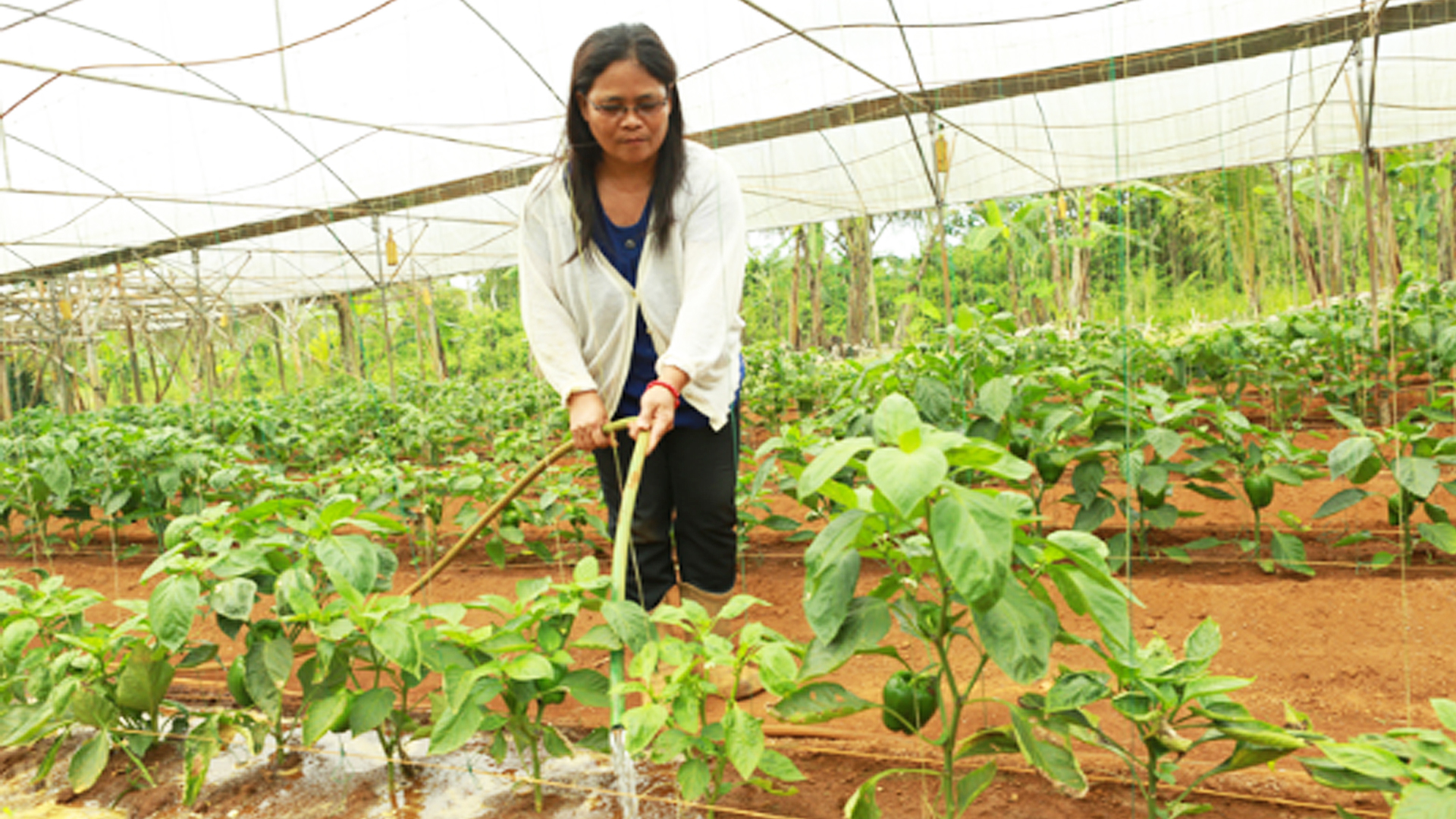
Manila, December 22, 2020— Women entrepreneurs in the Philippines stand to benefit from new loans issued to two of the country's largest microfinance institutions, which will help keep businesses afloat and save jobs as the Philippines grapples with the economic impacts of the COVID-19 pandemic.
The International Finance Corporation (IFC), a member of the World Bank Group, plans to issue up to 750 million Philippine pesos ($15 million) in debt financing to CARD Bank Inc. and CARD SME Bank Inc. which are part of the Center for Agriculture and Rural Development – Mutually Reinforcing Institutions Group (CARD MRI).
The investment aims to benefit over 60,000 companies, 44,000 of which are micro, small and medium enterprises (MSMEs) owned or led by women. The banks have more than 120 branches and serve four million customers. Support from the Women Entrepreneurs Finance Initiative (We-Fi) in the form of performance-based incentives will help the banks reach pre-defined targets for lending to women-owned/led small and medium-sized enterprises (SMEs).
"Filipino women entrepreneurs are fighting to recover from the grave effects of the pandemic, and we are right behind them every step of the way" said Dr. Jaime Aristotle B. Alip, Founder and Chairman Emeritus of CARD MRI. "We believe that a poverty-free Philippines can be achieved by empowering these women to reach their full potential. Through this partnership with IFC, we can reach more women-owned and led MSMEs and help them continue their journey towards a better future."
The funding will provide critical working capital to MSMEs, which have been especially disadvantaged by the pandemic due to the lack of funding buffers and capacity to restart operations during strict quarantine periods. MSMEs account for 99.5 percent of businesses in the Philippines. More than half of those businesses are led by women, and the largest share of companies operate in wholesale and retail, which have been particularly impacted by COVID-19.
The financing package is part of IFC's $8 billion global COVID-19 fast-track financing facility, aimed at helping businesses stay afloat during the ongoing public health crisis. The loans are being provided through IFC's Working Capital Solutions Program, a $2 billion facility that provides funding to emerging-market banks to extend credit to help businesses shore up their working capital.
"We are delighted to continue our long-standing relationship with Dr. Alip and the CARD MRI Group," said Rosy Khanna, Regional Industry Director for Financial Institutions Asia Pacific at IFC. "The success of women-owned businesses in the Philippines is critical to the success of the overall economy. Our investment will help provide much-needed working capital at a crucial time for micro, small and medium sized businesses, helping them to sustain operations and save jobs so they are on a better footing for a successful post-crisis recovery."
The transaction is IFC's first investment in the Philippines as part of its Banking on Women business, which provides financing and expertise to financial institutions to help them profitably finance women-owned businesses. Women customers present a substantial growth opportunity for financial institutions and financial-technology companies, known as fintechs. Women own and lead roughly 9.7 million formal SMEs and 63.8 million micro-businesses in emerging markets, with a total estimated unmet credit demand of $1.5 trillion.
The transaction builds on a relationship between IFC and CARD MRI that began in 2007, when IFC helped CARD MRI develop an SME lending platform. Since then, the two institutions have worked together on a series of initiatives, including agrifinance, digital risk management and the Binhi Crop Insurance Program, which protects farmers from the adverse effects of natural disasters.
CARD MRI aims to empower socially and economically challenged women and families by providing access to financial, educational, social and health services. The group has 6.9 million clients and insures over 25 million people in the Philippines.
About We-Fi
The Women Entrepreneurs Finance Initiative (We-Fi) is a collaborative partnership among the 14 governments that have made financial contributions, six multilateral development banks that serve as implementing partners, and other public and private stakeholders. We-Fi was formally established in October 2017 as a Financial Intermediary Fund hosted by the World Bank. We-Fi invests in programs and projects that help unlock billions of dollars in financing to address the full range of barriers facing women entrepreneurs—increasing access to finance, markets, technology, and mentoring, while strengthening policy, legal and regulatory frameworks. As one of the We-Fi Implementing Partners, IFC supports private sector clients with investment and advisory services to expand financial services and market access for women-owned/led firms, as well as increasing the capacity of women entrepreneurs to run high-growth businesses. For more information, visit www.we-fi.org.
About IFC
IFC—a member of the World Bank Group—is the largest global development institution focused on the private sector in emerging markets. We work in more than 100 countries, using our capital, expertise, and influence to create markets and opportunities in developing countries. In fiscal year 2020, we invested $22 billion in private companies and financial institutions in developing countries, leveraging the power of the private sector to end extreme poverty and boost shared prosperity. For more information, visit www.ifc.org.
About CARD MRI
CARD Mutually Reinforcing Institutions (CARD MRI) is a group of institutions with a holistic approach to development. Established in 1986, CARD MRI has continuously provided socio-economically challenged families with access to financial, microinsurance, education, livelihood, health and other capacity-building services. CARD Bank and CARD SME Bank are both member-institutions of CARD MRI with clients served of 3.3M and 1M individuals, respectively.
Contacts
Stay Informed
Sign up to have customizable news & updates sent to you.